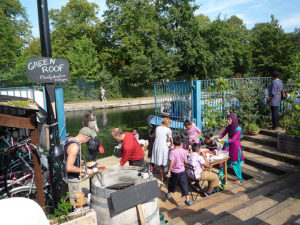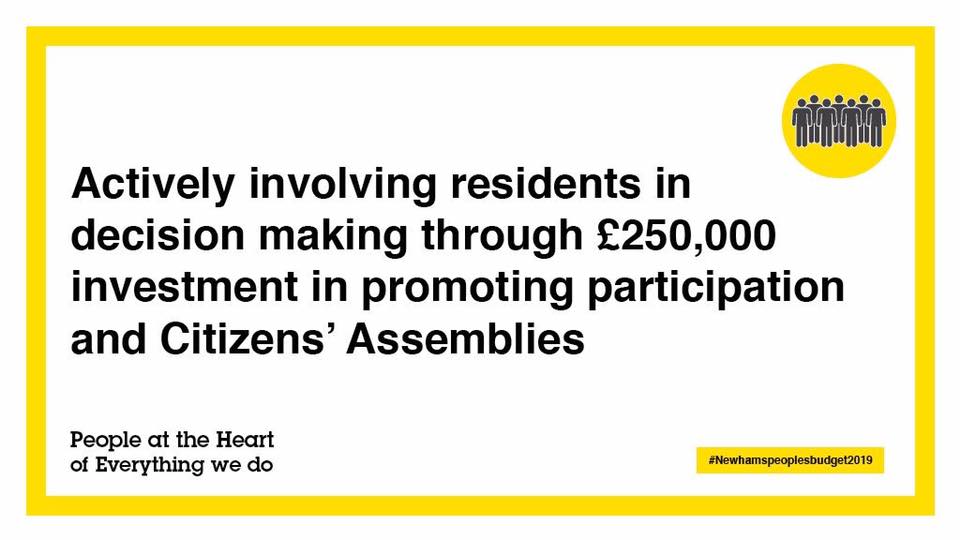The recent decisions by the Bethnal Green and Bow CLP and Newham Council to campaign for the abolishment of the Executive Mayoralty. I ask below what kind of democracy would we want to replace the existing centralised and autocratic system.
A Week in Politics
On the 22nd of November 2018, Bethnal Green and Bow Labour Party took the decision to campaign for the abolishment of the Executive Mayoralty. On the 26th November 2018, Newham Council voted to hold a referendum to abolish the Executive Mayoralty, at the same time the new Mayor, Rokshana Fiaz announced a Democracy and Civic Participation Commission. Conversations and evidence gathering with residents is likely to be wide-ranging and involve social dialogue online, roadshows and public inquiry-style sessions with national democracy experts, academics and councillors. The Commission would be tasked to report within 12 months of being set up.
Given the decisions both in Newham and in Tower Hamlets, it has lead to discussions as to what are the best structure to govern both boroughs. Given the diverse populations and extreme inequalities, there is a consensus the business as usual is not an option.
Democratisation from the Ground Up
On the 21st of November 2015 in Bristol, Jeremy Corbyn as the newly elected leader of the Labour Party gave a speech, outlining the three policy pillars of his leadership: Democratisation from the ground up; Anti austerity; and an ethical foreign policy. These three pillars are now refashioning national Labour Party policy.
Democratisation from the ground up is a radical concept, in its essence it asks for power that is not really justified by the will of the governed should be dismantled, more to the point it should be refashioned from below. Without self interested lobbies (business, bureaucrats and politicians) maintaining their privilege with propaganda and force through economic & political structures, ordinary folks might own own and govern the places where they live and communities might provide for the basic needs of everyone. The method being not soley relying on the exercise of state powers, but rather to reconstruct the economic life of the people from the ground up, build it up in the spirit of Socialism.
Power to Estate Boards and Tenants Residents Association (TRAs) – Why I am supporting the campaign by the Wellington TRA campaign to save the Canal Club

The Canal Club on the Wellington Estate, where residents are campaigning for the Council to give back ownership and management of a community centre, gifted to the estate by the then Greater London Council.
There is no contradiction between holding such ideals and pursuing certain reforms through the existing structures when there’s a chance for a more free, more just society in the short term; such humility is a necessary antidote to the self defeating purism of ideology. One good example is giving more powers to TRAs and tenants in general on estates through balloting for major decisions. Ordinary folks who live on an estate know best how to design and meet the needs of the estate. And if asked to find space for more housing through infills, to meet the housing shortage, they will come up with more sustainable solutions (as many suffer from overcrowding themselves) than politicians and bureaucrats who a) don’t live in the area and b) come from privileged background and thus have no experience of living on a social housing estate.
That is why I supported, in a recent Labour Party meeting, the call by residents from the Wellington Estate, for the Council to rethink its existing plans and come with a more meaningful and inclusive process of making decisions with regards to regeneration. Many other existing institutions or processes in Tower Hamlets, through simple acts of reforms can be transformed to increase Democratic and Civic participation, for example the budget process or the management of parks and public spaces.
A Homage to George Orwell
The kind of democratisation from the ground up was the cause of George Orwell’s revelry upon arriving at Barcelona in 1936, during the Spanish Civil War, to join the war against Fascism. In Homage to Catalonia, he records:
“Up here in Aragon one was among tens of thousands of people, mainly though not entirely working class origin, all living at the same level and mingling in terms of equality. In theory it was perfect equality, and even in practice it was far from it.
There is a sense in which it would be true to say that one was experiencing a foretaste of Socialism, by which I mean that the prevailing mental atmosphere was that of Socialism.
….One had been in a community where hope was more normal than apathy or cynicism, where the word “comrade” stood for comradeship and not as in most countries for humbug. One had breathed the air of equality.”




I attended the recent Labour meeting where a motion was passed calling on THC to review the demolition of a vibrant local community hub in order to hand it to a developer to build 50% ‘unaffordable’ flats and 50% social rented! We know that would end up being only 10% social rented…..accessed through a ‘poor door’.
I agree with Cllr Miah – CONSULT THE RESIDENTS of Wellington Estate!